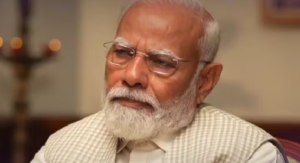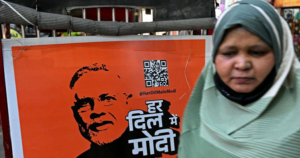Seven years ago, on 16 February 2015, the veteran communist leader, rationalist thinker, senior labour lawyer, and prolific writer Govind Pansare was shot at close range outside his house. On 20 February, he succumbed to his injuries. We lost a rare person.
Maharashtra has a rich legacy of egalitarian saints and social reform movements as well as the legacy of warrior-king Shivaji. But at the same time, Maharashtra is one of the places that is the origin of the radical Hindutva ideology, represented by the Rashtriya Swayamsevak Sangh. In the 1990s, the state was led in dangerous direction. The demolition of the Babri Masjid in 1992 and the communal riots that followed in different parts of the state polarised our minds in a communal way, shaking the secular mindset of Maharashtra.
At that time, Comrade Pansare started openly speaking about the simultaneous impact of the forces of neoliberalism and religious fundamentalism. He promoted progressive, secular, and socialist ideas. He offered his clear knowledge of the indigenous history and culture of Maharashtra as well as his analysis of the deep-rooted caste system and religious spirit in the country. From a Marxist perspective, he reinterpreted the secular traditions of Maharashtra, writing in simple language and boldly and effectively reaching the masses. His books are still popular among the people. Amongst them, the most important are Who Was Shivaji?, Peasant Distress, The Story of Kashmir, and Introduction to Marxism. This enraged the radical Hindustva organisations. This cost him his life.
The investigation process of his murder showed the interconnections between the assassinations of the rationalist Dr. Narendra Dabholkar (2013), Professor MM Kalburgi (2015), and the journalist Gauri Lankesh (2017). Agencies of both Maharashtra and Karnataka have found that the accused are related to the Sanatan Sanstha and the Hindu Janjagruti Samiti, both radical Hindutva organisations. Their mouthpiece – Sanatan Prabhat – says that they want to annihilate progressive thougth and establish a Hindu Rashtra in the country. Sanatan Sanstha founder Jayant Athawale’s Kshatra Dharma Sadhana advocates for the killing of durjanas (evil persons), who are against the project of Hindu Rashtra. This is an unconstitutional and dangerous attitude.
We, the families of the victims, are in touch with each other and we share our experiences of the investigation. It is really painful to seek ‘justice’ in these cases where people are killed just because of their ideas, particularly when the state seems to be insensitive to these murders and to us. I personally knew three of the victims: I have listened to the speeches of Dr. Narendra Dabholkar since I was a student activist of a left organisation; Comrade Pansare was not just a father-in-law to me but a mentor, an intellectual friend, and a true comrade; Gauri Lankesh was with us during the protests against the murder of Prof. Kalburgi. On the death anniversary of Prof. Kalburgi, thousands of people marched silently in Dharwad. Since there was no progress in the investigation of Prof. Kalburgi’s murder, we went to the residence of Karnataka’s Chief Minister Mr. Siddaramaiah. We asked him to make an unambiguous public statement and, then, to take at least one concrete action before 30 August 2017, a year later. Gauri arrived when the meeting ended because she did not know it had been preponed. We need to plan a large protest, she said. Before leaving, she hugged me and asked me to come to Bangalore again to attend a meeting. That was on 26 August 2017. She was killed on 5 September 2017. I was then at Jawaharlal Nehru University (New Delhi) to participate in a seminar. It is so difficult, so painful to accept that she is not with us.
The investigation of the assassinations of the rationalists has been very slow. There was some progress when the families of Dabholkar and Pansare moved the High Court with a writ petition to ask the court to monitor the investigation. We could do this because we have a lawyer – Advocate Abhay Nevagi, a friend of Comrade Pansare – who has worked with us despite the intimidation and for no fees. It requires patience to understand the law and to understand its institutions; it takes time and money to attend the sessions and follow what is happening. It also requires courage to stand firmly against the forces that speak the language of hatred and violence in our society, and speak this language without fear of being called to account.
The trial in the murder of Dr. Dabholkar has begun. The trial in Comrade Pansare’s murder case is expected to begin soon. There are twelve accused in Comrade Pansare’s case, out of which have absconded, two have been given bail, and the others are in prison for the assassination of one or more rationalists. None of the weapons or vehicles used during the murders have been located.
Out of the two weapons used in Comrade Pansare’s murder, one was used in the murder of Dr. Dabholkar and the other was used in the murders of Prof. Kulburgi and Gauri Lankesh. The Anti-Terrorism Squad of Maharashtra raised the houses of members of the Sanatan Sanstha at Nalasopara (a suburb of Mumbai). They removed a huge number of explosives. Some of those accused in the Nalasopara Bomb Case are also accused in the murders of Dabholkar, Pansare, Kalburgi, and Lankesh as well as the attempt to commit murder of Professor KS Bhagawan. The investigation of the murder of Com. Pansare does not go beyond the involvement of Dr. Virendra Tawade of Sanatan Sanstha. It does not go deeper into what was a thoroughly planned crime. Who was the real mastermind of these murders? It is important to appreciate that such large scale activities to meet the purpose of particular thought process cannot be carried out by handful of persons unless there is organizational support. It can be substantiated with the fact that even after arrest of Dr. Tawde on 10 June 2016, Gauri Lankesh was murdered on 5 September 2017. All the activities were carried out across India in a systematic manner. Till the entire process is unearthed, no rationalist, author, activist, or journalist can sleep in peace.
In my opinion, the judicial battle is insufficient. After the assassination of Comrade Pansare we realised that the violence, which entered our home, is a threat to the secular and democratic set-up of the country. It is not just a question of our family, but of the future of the country. The principle of equality and social justice, the right to freedom of thought and expression, the right to dissent and the existence of cultural diversity, as well as the secular values are all under attack.
The grief of the personal loss connected us with many others who cried after the rationalists were silenced. They came onto the streets to condemn the murders and demanded the arrest of the assassins. The campaigns have cascaded: writers and scientists have returned their awards, writers and poets from various states expressed their solidarity with us, national conferences (Pratirodh and Mumbai Collective) were held to raise awareness and spread secular and democratic ideas, Dakshinayan Abhiyan was formed to bring the forces of secularism together, silent protest marches were held on the anniversary of Gandhi’s assassination, poetry recitations and painting exhibitions have been held. We organised a Nirbhaya Morning Walk on the 20th day of every month for five years to remind people that Comrade Pansare was shot during his morning walk.
The space for free expression is shrinking in our country. There have been regular attacks on journalists and artists, intellectuals and farmers. We have been compelled to fight to expand the public sphere. It is extremely worrying to see the state patronise religious fundamentalist forces. We must raise our voices to stop the silencing of our voices by guns.
Dabholkar, Pansare, Kalburgi, and Gauri can be killed by guns, but their words and thoughts can never be silenced.
(Megha Pansare, the daughter-in-law of Govind Pansare, teaches Russian at Shivaji University, Kolhapur, Maharashtra. Courtesy: Newsclick.)




